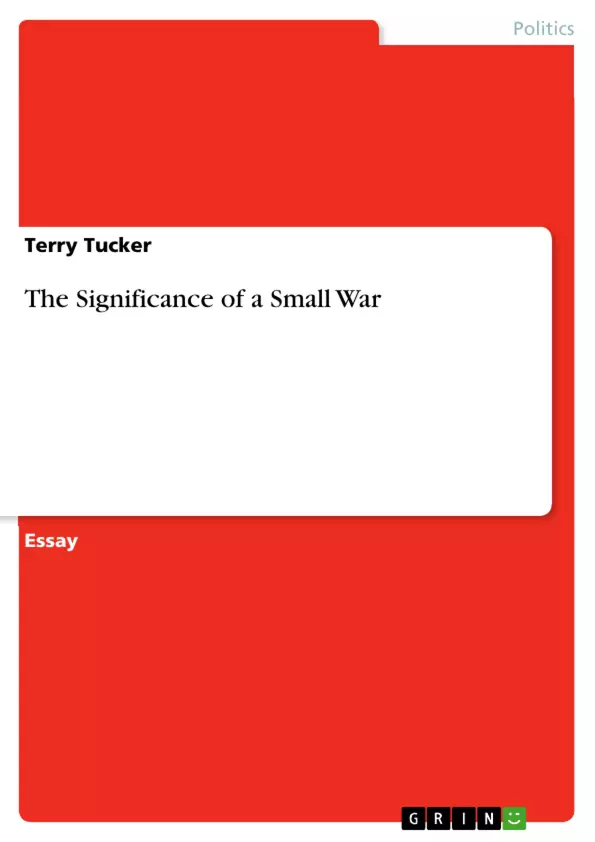This paper looks at the recent conflict in Georgia. Shaping operations are critical to military success. A thorough understanding of the operating environment is crucial to planning the shaping. this vignette looks at how social dynamics were shaped and exploited.
Inhaltsverzeichnis (Table of Contents)
- The Significance of a Small War
- Russia's Capitalist Revolution: Why Market Reform Succeeded and Democracy Failed
- The Bear Went over the Mountain
- Examining the Authoritarian Model of Counterinsurgency: The Soviet Campaign against the Ukrainian Insurgent Army
- Small Wars and Insurgencies
- The Clash of Civilizations and the Remaking of World Order
Zielsetzung und Themenschwerpunkte (Objectives and Key Themes)
This text examines the significance of the 2008 Russo-Georgian War, a small war with wide-ranging international ramifications. It explores the conflict's historical context, the motivations behind the Russian invasion, and the implications for regional stability.
- The nature of "small wars" and their significance in contemporary conflict
- The role of Russia as a regional power and its evolving foreign policy
- The impact of the conflict on international relations and the potential for future instability
- The use of information warfare and propaganda in shaping public perception
- The relationship between "frozen conflicts" and the post-Soviet geopolitical landscape
Zusammenfassung der Kapitel (Chapter Summaries)
The text analyzes the 2008 Russo-Georgian War within the context of historical conflict patterns. It explores how the war exemplified the complexities of "small wars" and their global implications. The conflict is interpreted as a manifestation of frozen conflicts, stemming from cultural and ethnic divisions exacerbated by the collapse of the Soviet Union.
Schlüsselwörter (Keywords)
Key terms and concepts include: small wars, frozen conflicts, Russia's foreign policy, post-Soviet geopolitical landscape, information warfare, propaganda, cultural and ethnic divisions, humanitarian intervention, self-defense, regional instability, and the Russian "Monroe Doctrine." The analysis also highlights the significance of the conflict within the framework of "small wars" and its broader implications for international security.
Frequently Asked Questions
What was the significance of the 2008 Russo-Georgian War?
Despite being a "small war" in terms of scale, it had wide-ranging international ramifications for regional stability and post-Soviet geopolitics.
What are "frozen conflicts"?
The term refers to unresolved ethnic and territorial disputes from the collapse of the Soviet Union that can be exploited for political and military shaping operations.
How did Russia use information warfare in this conflict?
Russia utilized propaganda and information shaping to influence public perception and justify its military intervention in Georgia.
What is the Russian "Monroe Doctrine"?
The paper discusses Russia's evolving foreign policy, which views neighboring post-Soviet states as its exclusive sphere of influence.
Why is understanding the operating environment crucial for military success?
A thorough understanding of social dynamics and the geopolitical landscape is essential for planning effective shaping operations before and during a conflict.
- Quote paper
- Professor of History Terry Tucker (Author), 2011, The Significance of a Small War, Munich, GRIN Verlag, https://www.grin.com/document/165139



